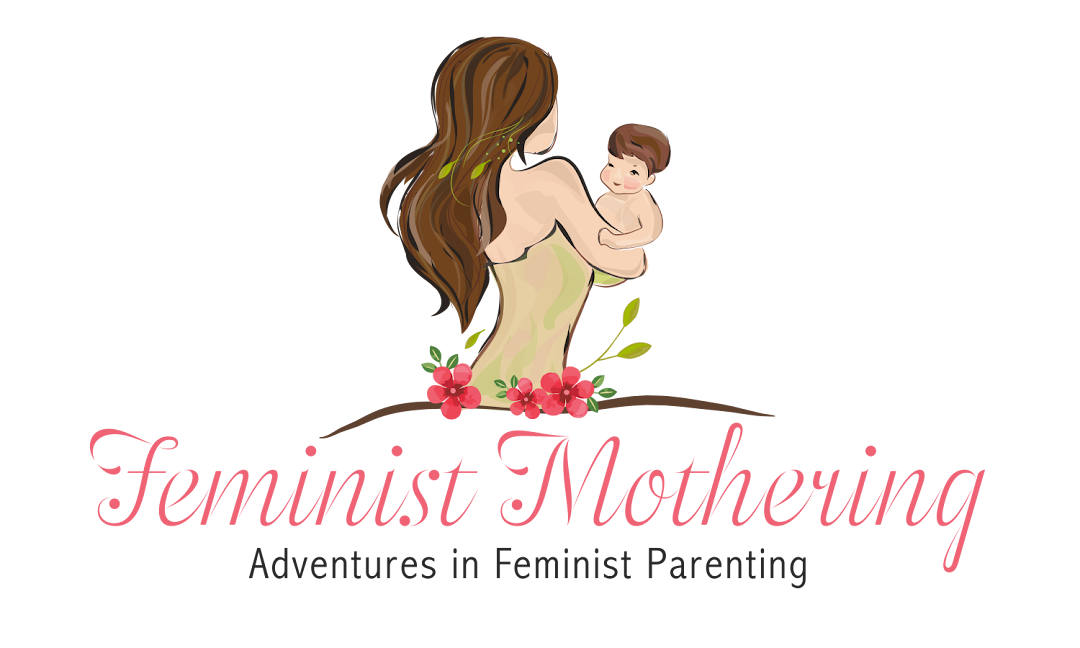If you listen to right-wing critics of feminism, you'll quickly hear that feminism is an anti-motherhood, anti-family movement, and that there is nothing feminist about getting pregnant. Meanwhile, self-styled feminists attempt to exclude mothers and children from public spaces, and feminist parenting advice is virtually nonexistent. That denial of the transformative feminist power of motherhood is reason enough to call pregnancy a feminist issue, but it's far from the only reason.
Eighty-one percent of women become mothers by age 44. Motherhood affects more women than any other feminist issue, yet it remains remarkably absent in feminist circles. Even among women who, by choice or by chance, never get pregnant, the specter of pregnancy constantly looms. Child-free women are chastised for their “selfish” choices, or dismissively told they will change their minds. Infertile women face a constant barrage of intrusive questions about their bodies. Women of every age are told that their primary duty is to motherhood, and that this duty can and should interfere with everything else. Want to struggle to get a job? Tell the next person who interviews you that you might get pregnant in the next two years. Or don't, and watch them ask anyway—even though pregnancy discrimination is illegal.
Since I've gotten pregnant, I've been surprised by how ignorant my non-parent friends are of pregnancy-related feminist issues. It's like reproductive choice and health issues begin and end with abortion. If your choice includes having a baby, somehow you're irrelevant to feminism.
In the (as of this writing) 10 short weeks I have been pregnant, feminism has become more relevant to my life than ever before. I am constantly reminded that people think women's primary duty is to become mothers. My thoughts and feelings are dismissed because of my pregnancy. Total strangers assault me because they “can't resist” the desire to touch my growing stomach.
Some of the many new and worsening forms of sexism pregnant women experience include:
- Physical assaults. Almost all pregnant women encounter strangers who touch their stomachs without their consent. Some even fight women to do it, or sneak up behind them to avoid being pushed away.
- Violence. Murder is the leading cause of death for pregnant women, and women are more likely to be murdered or abused during pregnancy than at any other time during their lives.
- Complete disregard for concepts of autonomy and reproductive choice. 73% of women who undergo episiotomies—a largely unnecessary cutting open of the vagina during childbirth—say the procedure was done without their consent. Many hospitals require pregnant women to sign away their rights to informed consent. Women in labor are deprived of basic human rights for no good reason; doctors routinely prevent them from eating, require them to be shaved or undergo medically unnecessary enemas, or force them to wear hospital gowns, without any medical basis.
- Mental health problems. Many women struggle with mental health issues during pregnancy. Most providers are quick to dismiss these issues as hormonal, but most research shows that environmental factors such as traumatic birthing experiences, unsupportive partners, and financial distress play the most significant role in pregnancy-related mental illness. Pregnancy is the most stressful and demeaning experience many women ever have.
- Concern trolling. When women become pregnant, other people, including people they don't even know, begin treating their bodies as public property, up for public discussion: Are you sure you should eat that? Are you gaining too much weight?
- Invasions of privacy. On a near-daily basis, complete strangers ask me about my most intimate medical decisions. Through which orifice will my baby exit my body? Am I doing perineal massage? Am I constipated?
- Employment discrimination. No one assumes my husband will no longer be able to work now that I am pregnant, or once the baby is born. Not so for me. Though most pregnant women are able to work through their pregnancies, employers routinely fire pregnant women, demote them, or refuse to give them the maternity leave to which they are legally entitled.
- An onslaught of gender stereotypes. Though I have the same interests and personality as I did before, suddenly somehow everything is due to my hormones. Don't want to be grabbed by a random stranger? Pregnancy hormones.
Finally, and perhaps most importantly, parenting matters. A lot. The parenting choices each of us makes will determine how the next generation feels, behaves, and votes. I want to contribute to a kinder, gentler, more intelligent future, and plan to parent in a way that promotes that goal. We should all be concerned with how children are raised, and should all explore the best options for promoting child welfare. Note that this is a far cry from telling women how to parent, since women who feel miserable and controlled are inevitably going to be less capable parents.


No comments
Post a Comment
I moderate comments. Don't waste your time leaving a comment that I won't publish. All comments are subject to my comments policy. I welcome open discussion and differing opinions, but not abuse.